What is Psychology Class 11 Psychology
What is Psychology?
- Psychology is a continuously evolving discipline that studies a wide range of phenomena related to human experience and behavior.
- Originally thought to be the study of the soul or mind, psychology has transformed into a scientific field exploring the processes underlying human behavior across different levels and bases.
Psychology is formally defined as a science that examines mental processes, experiences, and behaviors using methods from biological and social sciences to systematically gather and interpret data.
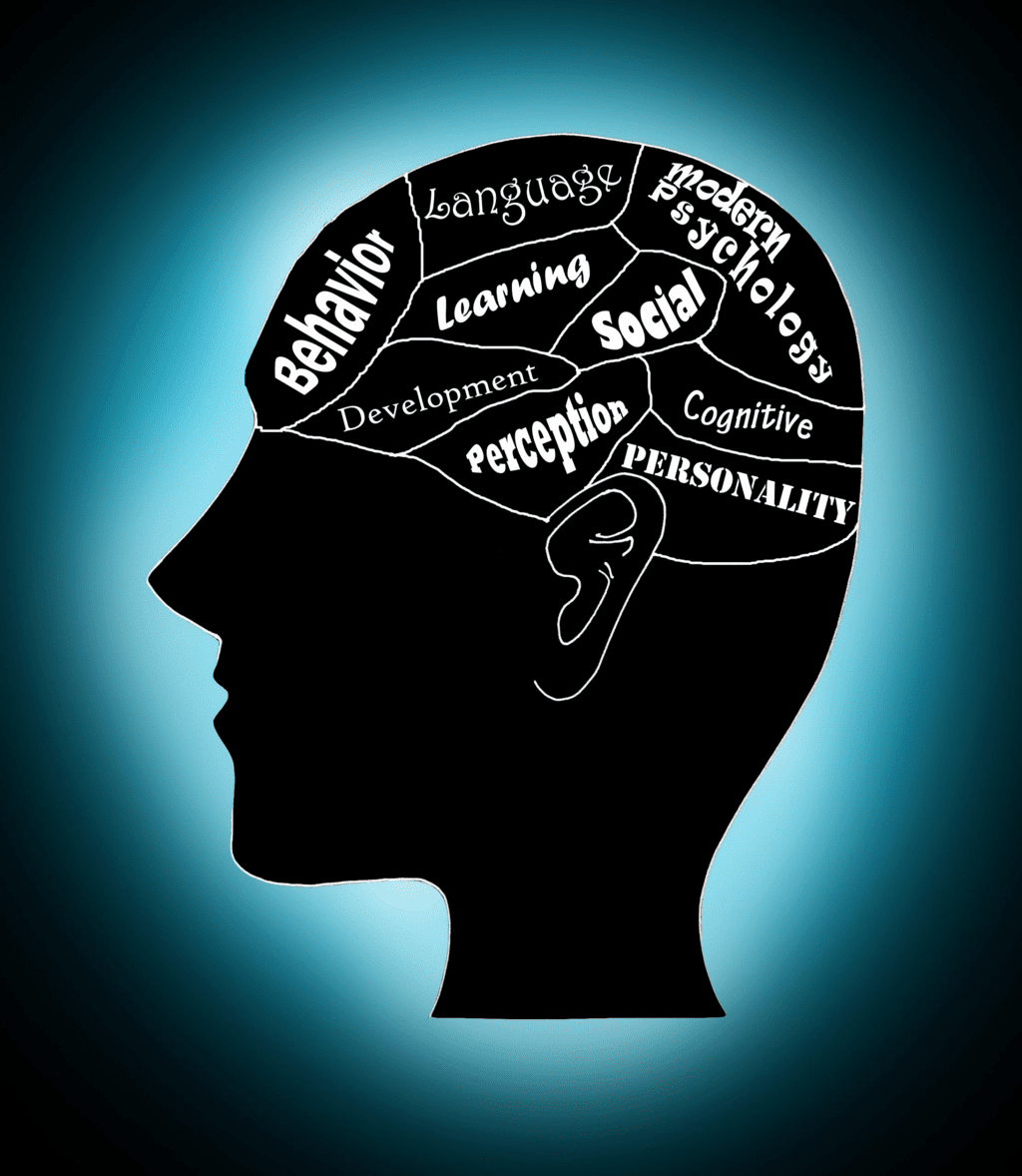 Human Brain: Behaviour, experiences, mental processes
Human Brain: Behaviour, experiences, mental processes
- Mental processes refer to internal states of consciousness and awareness, distinct from brain activities though interconnected with them.
- Experiences, subjective in nature, are deeply embedded in an individual's consciousness, influenced by internal and external conditions.
- Behaviors encompass responses, actions, and activities triggered by stimuli, whether internal or external, with psychologists often studying the relationship between stimuli and responses.
- Psychologists focus on understanding processes such as learning, remembering, perceiving, and feeling to enhance mental capacities and applications.
- Experiences studied by psychologists range from pain and bereavement to positive encounters and esoteric states like meditation-induced consciousness shifts or drug-induced highs.
- Behavior analysis delves into both overt and covert actions, linking them to environmental stimuli and internal processes that prompt reactions or activities.
Psychology as a Discipline
- Psychology studies behavior, experience, and mental processes to understand how the mind works and how different mental processes lead to various behaviors.
- Psychologists aim to minimize biases in explanations by employing scientific and objective analysis or by emphasizing subjective experiences as essential to human understanding.
- In the Indian tradition, self-reflection and conscious experience analysis are seen as significant for psychological insights, a view increasingly echoed by Western psychologists.
- Despite diverse approaches, psychologists seek systematic and verifiable understanding of behavior, mental processes, and experiences.
- Psychology, while an ancient field, is a relatively young science, dating back to the establishment of the first psychology laboratory in 1879 in Leipzig.
- The classification of psychology as a social science is common, yet it is also studied as a science discipline in India and elsewhere, with many pursuing B.Sc. or M.Sc. degrees.
- Fields like Neuroscience and Computer Science heavily draw from psychology, with brain imaging technologies and cognitive psychology being pivotal for advancements in various disciplines.
- Psychology today encompasses two main streams: one rooted in physical and biological sciences and the other in social and cultural sciences, often intersecting and diverging in their approaches.
- Psychology focusing on biological principles seeks causal explanations for behavior, aiming to predict and control behavior based on identified cause-and-effect relationships.
- Conversely, psychology as a social science emphasizes explaining behavior through person-sociocultural context interactions, assuming multiple causes for behavioral phenomena.
Psychology as a Natural Science
- Psychology, originating from philosophy, has evolved into a science through the application of the scientific method.
- Science emphasizes objectivity, achievable through consensus on concept definitions and measurement methods.
Hypothetico-Deductive Model in Psychology:
- Psychology follows a hypothetico-deductive model, akin to how physics progresses.
- Scientific growth occurs through theory formulation to explain phenomena.
- Theory comprises interrelated statements explaining complex phenomena.
- Scientists derive hypotheses from theories, proposing tentative explanations.
- Hypotheses are tested using empirical data, either confirming or refuting them.
- Theory revision occurs based on empirical findings differing from hypothesis expectations.
Psychological Theories Development:
- Psychologists have formulated theories on learning, memory, attention, perception, motivation, and emotion using the above approach.
- Most psychological research aligns with this theoretical development methodology.
Evolutionary Influence on Psychology:
- Psychologists have been significantly influenced by the evolutionary approach prevalent in biological sciences.
- This approach aids in explaining various psychological phenomena like attachment and aggression.
Psychology as a Social Science
- Psychology is classified as a social science due to its examination of human behavior within socio-cultural settings where individuals both shape and are influenced by these contexts.
- Illustrative Example: Ranjita and Shabnam, classmates with contrasting backgrounds and behaviors, showcase the impact of social and cultural factors on individuals.
- Ranjita hailed from a farming family, excelled in athletics, and enjoyed social interactions, while Shabnam, an artist, preferred solitude and cared for her family.
- During a flood incident, Shabnam sought refuge in Ranjita's home, leading to a close bond between their families and a deep friendship between the two girls.
- Their differing responses to the crisis highlight the complex interplay between individual characteristics and societal influences, underscoring the unpredictable nature of human behavior.
- Psychology's role as a social science involves studying how individuals and communities interact with their socio-cultural and physical environments, elucidating behaviors and experiences within diverse social contexts.
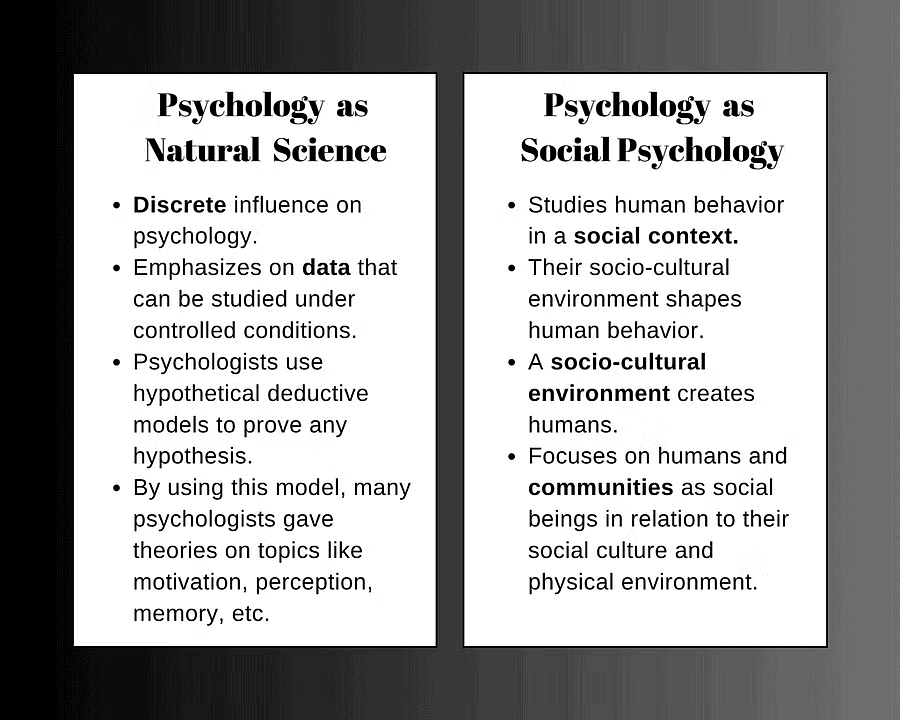
Understanding Mind and Behaviour
- Psychology was historically defined as the science of the mind, a concept that was challenging to define in concrete behavioral terms or locate physically.
- Neuroscientists like Sperry and physicists like Penrose have helped restore respect to the concept of the mind within psychology.
- While a unified theory of the mind is considered a distant possibility, some scientists believe it could eventually be achieved.
- The mind and the brain are not the same; while the mind is dependent on the brain, it is a distinct entity.
- Cases of individuals functioning normally despite damage to brain regions responsible for certain functions suggest the separateness of the mind from the brain.
- Recent findings in affective neuroscience highlight the connection between the mind and behavior, demonstrating the influence of positive visualization and emotions on bodily processes.
- Techniques like mental imagery have been successful in treating phobias, and the emerging field of Psychoneuroimmunology underscores the mind's role in bolstering the immune system.
Popular Notions about the Discipline of Psychology
- Everyday, individuals tend to analyze and explain why people behave the way they do, often based on common sense theories.
- Common sense explanations of human behavior may not always hold true when scientifically investigated, as they are often hindsight-based and limited in explanatory power.
- For instance, reactions to a friend moving away can vary, with sayings like "Out of sight, out of mind" and "Distance makes the heart grow fonder" offering contrasting views based on individual experiences.
- Psychology as a science aims to predict patterns of behavior rather than retrospectively explain them, often challenging common sense beliefs.
- An example by Dweck (1975) illustrates how common beliefs about boosting confidence by starting with easy tasks were contradicted by a study where students who faced both success and failure showed greater resilience.
- Empirical studies have debunked common sense notions like gender-based intelligence differences and performance anxiety in front of audiences.
- Psychologists distinguish themselves from astrologers and palm readers by systematically examining data to formulate principles about human behavior and psychological phenomena.
Evolution of Psychology
Psychology evolved rapidly from ancient philosophy to a formal modern discipline in the late 19th century.
 Evolution Of Psychology
Evolution Of Psychology
1. Structuralism
- Wilhelm Wundt gave the school of structuralism.
- He used the method of Introspection to analyze the structure of the mind.
- As this method didn’t satisfy other psychologists, new schools were introduced.
2. Functionalism
- William James gave functionalism to study the human mind.
- He argued that psychologists should study what the mind does and how behavior functions in making people deal with their environment.
- He said that consciousness as an ongoing stream of mental processes interacting with the environment formed the core of psychology.
3. Gestalt psychology
- Emerged as a new school in Germany.
- This shows that what we experience is more than the inputs received from our environment.
- Experience is holistic; it is a Gestalt.
4. Behaviourism
- John Watson established behaviourism in which he denied the idea of introspection and consciousness.
- As per him, scientific psychology must focus on what is observable and verifiable.
5. Psychoanalysis
- Sigmund Freud gave Psychoanalysis.
- He viewed human behavior as a dynamic manifestation of unconscious desires and conflicts.
- He considered human beings as motivated by an unconscious desire to gratify pleasure-seeking.
6. Humanistic perspective
- The humanistic perspective given by Carl Rogers and Abraham Maslow emphasized the free will of human beings and their natural striving to grow and unfold their inner potential.
7. Cognitive perspective
- Aspects of the Gestalt approach and structuralism were combined and led to the development of the cognitive perspective, which focuses on how we know about the world.
- Cognition is the process of learning.
8. Constructivism
- Modern cognitive psychology views human beings as actively constructing their minds by exploring the physical and the social world.
Development of Psychology in India
- The Indian philosophical tradition has a strong focus on mental processes, human consciousness, self, mind-body relations, cognition, perception, illusion, attention, and reasoning.
- Modern psychology in India has been mainly influenced by Western psychology, with some attempts to integrate Indian philosophical traditions through scientific studies.
- The modern era of Indian psychology began at Calcutta University, where the first syllabus of experimental psychology was introduced in 1915, with the establishment of the first psychology laboratory.
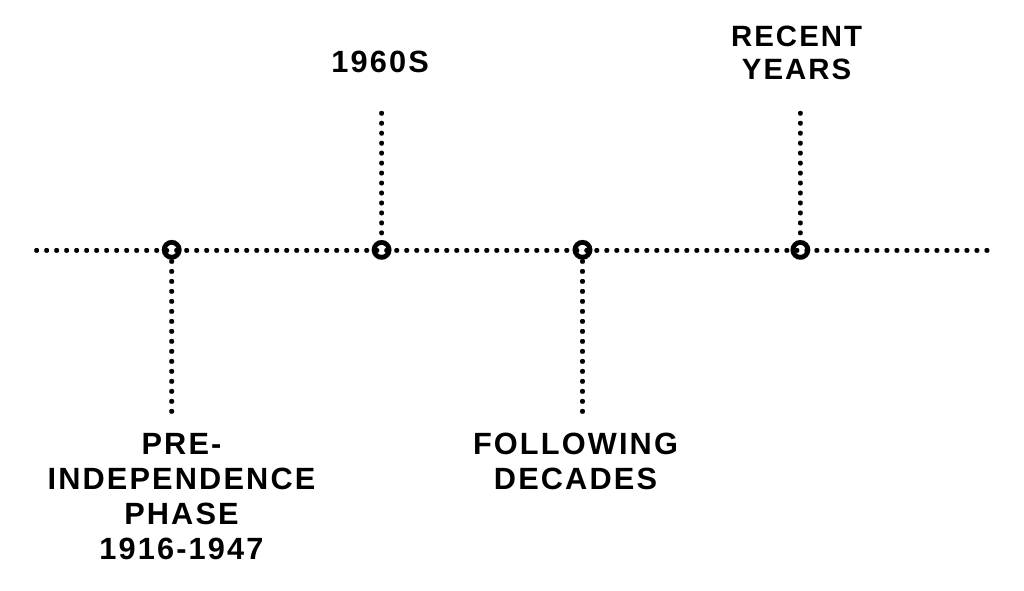 Development of Psychology in India
Development of Psychology in India
- Early influencers of psychology in India include Dr. N.N. Sengupta in experimental psychology and Professor G. Bose in Freudian psychoanalysis.
- Psychology in India has grown significantly with numerous teaching, research, and application centers, including two centers of excellence at Utkal University, Bhubaneswar, and the University of Allahabad.
- Durganand Sinha's book "Psychology in a Third World Country: The Indian Experience" outlines the history of modern psychology in India in four phases, emphasizing the evolution of psychology in the Indian context.
- The phases include a shift towards problem-oriented research, an emphasis on developing an Indian identity for psychology, and a focus on indigenization, drawing from traditional Indian psychology and cultural relevance.
- Psychology in India is contributing significantly to the global field of psychology, with a contextual approach emphasizing the development of psychological principles rooted in Indian social and cultural contexts.
- Recent trends involve research at the intersections of psychology with neurobiology and health sciences, along with diverse applications in various professional sectors such as clinical psychology, HRD, advertising, sports, development, and the IT industry.
Branches of Psychology
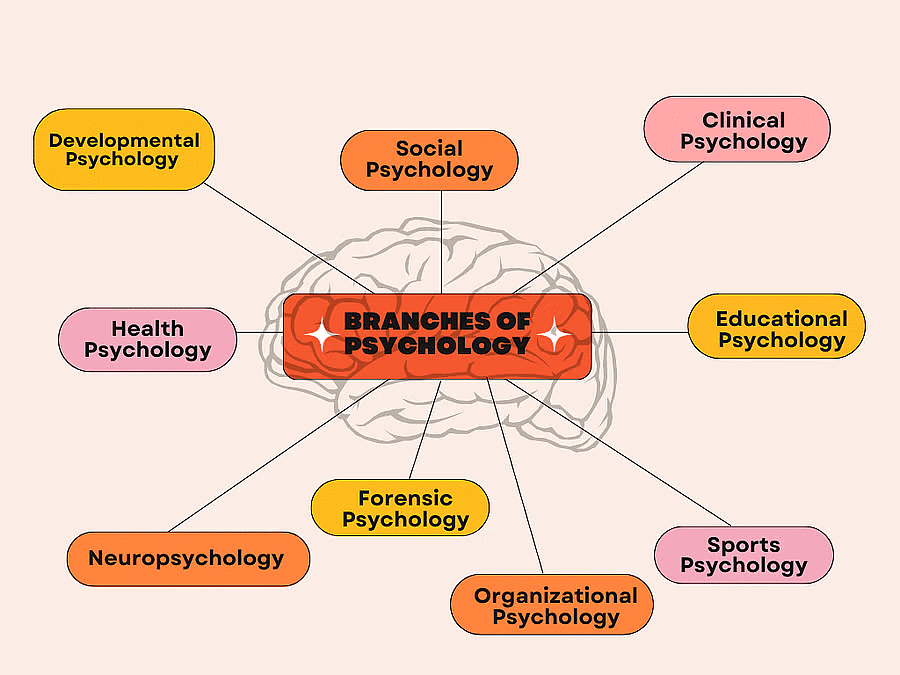
1. Cognitive Psychology
- Investigates mental processes like attention, perception, memory, reasoning, problem-solving, decision-making, and language.
- Conducts experiments in both lab and natural settings, collaborating with neuroscientists and computer scientists.
2. Biological Psychology
- Focuses on the relationship between behavior and the physical systems like the brain, nervous system, immune system, and genetics.
- Collaborates with neuroscientists, zoologists, and anthropologists.
3. Neuropsychology
- Studies neurotransmitters' role in neural communication, using advanced technologies like EEG, PET, and fMRI.
- Focuses on both normal and damaged brains.
4. Developmental Psychology
- Studies physical, social, and psychological changes across the lifespan, focusing on factors influencing characteristics like intelligence and emotion.
- Collaborates with various fields to understand human growth and development.
5. Social Psychology
- Explores how social environments influence individuals' thoughts and behaviors.
- Focuses on topics such as attitudes, conformity, interpersonal attraction, and inter-group relations.
6. Cross-cultural and Cultural Psychology
- Examines how culture impacts behavior, emphasizing the socio-cultural context of human behavior.
7. Environmental Psychology
- Studies how physical factors affect human behavior, including workplace arrangements and environmental influences.
- Focuses on topics like waste disposal, energy conservation, and community resource use.
8. Health Psychology
- Studies psychological factors' role in illness development, prevention, and treatment.
- Focuses on stress, coping, and health-promoting behaviors.
9. Clinical and Counselling Psychology
- Addresses causes, treatment, and prevention of psychological disorders, with a focus on improving daily functioning through counseling.
10. Industrial/Organizational Psychology
- Deals with workplace behavior, training employees, and improving work conditions.
11. Educational Psychology
- Studies learning across all ages and helps develop instructional methods and materials.
12. Sports Psychology
- Applies psychological principles to enhance sports performance and motivation.
- Other Emerging Branches of Psychology
- Include varied areas like aviation, space, military, forensic, rural, engineering, managerial, community, women's, and political psychology.
Psychology and Other Disciplines
Psychology is positioned at the crossroads of diverse fields related to human functioning.
- Psychology is crucial in understanding human behavior, and various other disciplines recognize its importance.
- An interdisciplinary approach has emerged in psychology, with researchers and scholars in science, social science, and humanities valuing its insights.
- Psychology shares knowledge with neurology, physiology, biology, medicine, and computer science when studying brain and behavior.
- In understanding human behavior in socio-cultural contexts, psychology collaborates with anthropology, sociology, social work, political science, and economics.
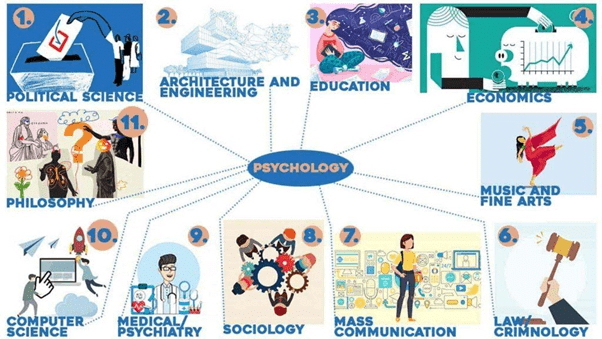 Psychology and other disciplines
Psychology and other disciplines
Regarding the creation of literary texts, music, and drama, psychology intersects with literature, art, and music.
- Philosophy played a significant role in early psychological inquiries before the field adopted an experimental approach in the late 19th century.
- Medicine acknowledges the connection between mental and physical health, with psychologists contributing to patient care in various medical settings.
- Economics, Political Science, and Sociology have drawn extensively from psychology, enriching their understanding of micro-level behaviors, power dynamics, and social interactions.
- Computer Science aims to mimic human cognitive processes, leading to advancements in cognitive sciences.
- Law and Criminology benefit from psychological insights regarding memory, decision-making, guilt, and punishment, aiding legal processes.
- Mass Communication and Psychology intersect in understanding media influences on attitudes and behaviors, as well as in developing effective communication strategies.
- Music and Fine Arts utilize psychological principles for performance enhancement and emotional studies.
- Architecture and Engineering incorporate psychological insights in design to cater to human needs and safety.
Psychology in Everyday Life
- Psychology serves not just as a field that satisfies our curiosity about human nature, but also offers solutions to a wide array of problems.
- Issues addressed by psychology span personal, familial, group, and community levels, extending to national and international dimensions.
- Various problems in areas like education, health, environment, social justice, and intergroup relations have psychological roots, stemming from negative thinking and behavior patterns.
- A psychological analysis aids in understanding and resolving these problems effectively.
Role of Psychology in Problem Solving:
- Psychology's potential in addressing life challenges is increasingly recognized, with media playing a crucial role in popularizing psychological solutions.
- Counsellors and therapists on TV often suggest remedies for a range of issues affecting different age groups and societal aspects.
- Psychologists actively contribute to intervention programs across diverse settings to enhance people's quality of life.
Application of Psychological Knowledge:
- Besides aiding in societal service, understanding psychology is personally beneficial for self-analysis and interpersonal relationships.
- Utilizing psychological principles can help in developing effective study habits, enhancing memory, and resolving personal and social issues through appropriate decision-making strategies.
- Psychological insights are valuable for reducing exam stress and fostering personal growth, offering rewards from both personal and social standpoints.
|
43 videos|88 docs|18 tests
|
FAQs on What is Psychology Class 11 Psychology
| 1. What is the primary focus of psychology as a discipline? |  |
| 2. How has psychology evolved over time? |  |
| 3. What are the main branches of psychology? |  |
| 4. How is psychology related to other disciplines? |  |
| 5. In what ways can psychology be applied in everyday life? |  |

















